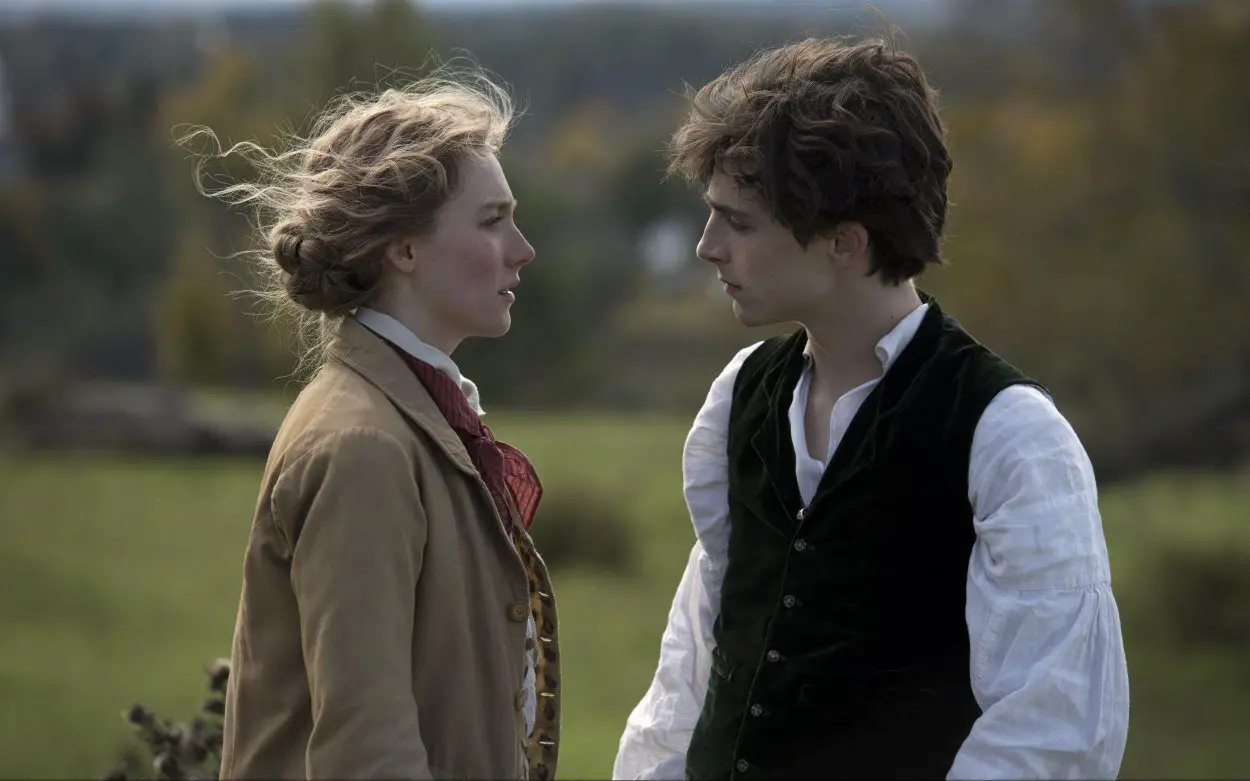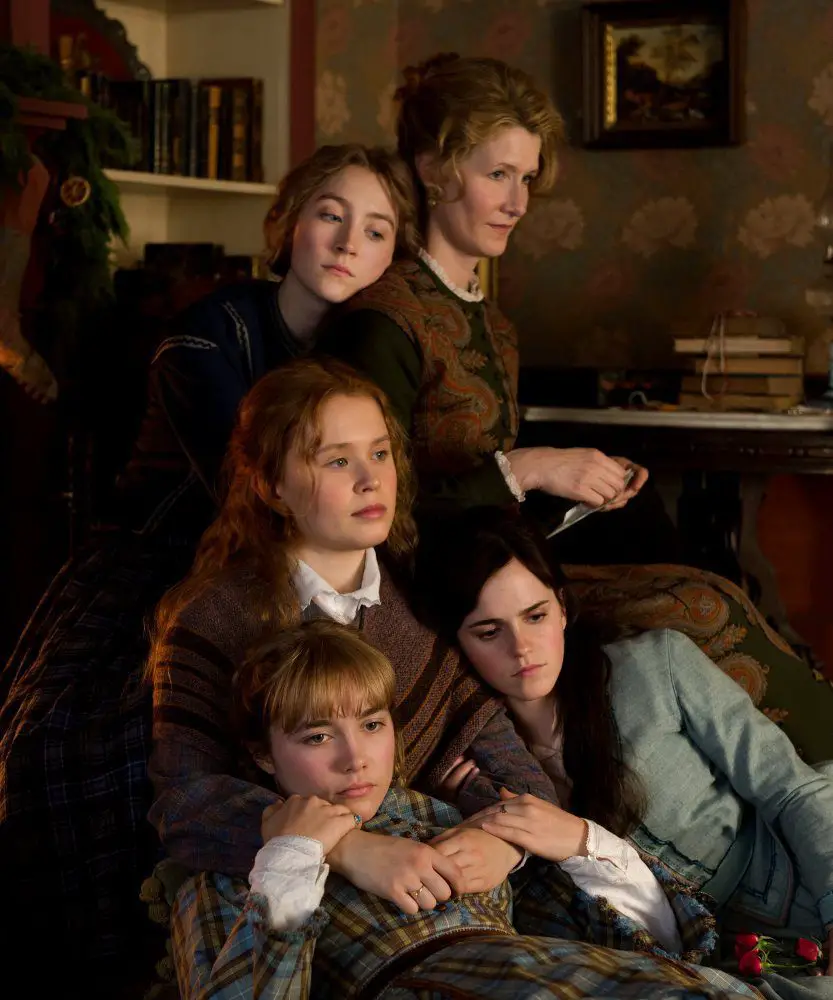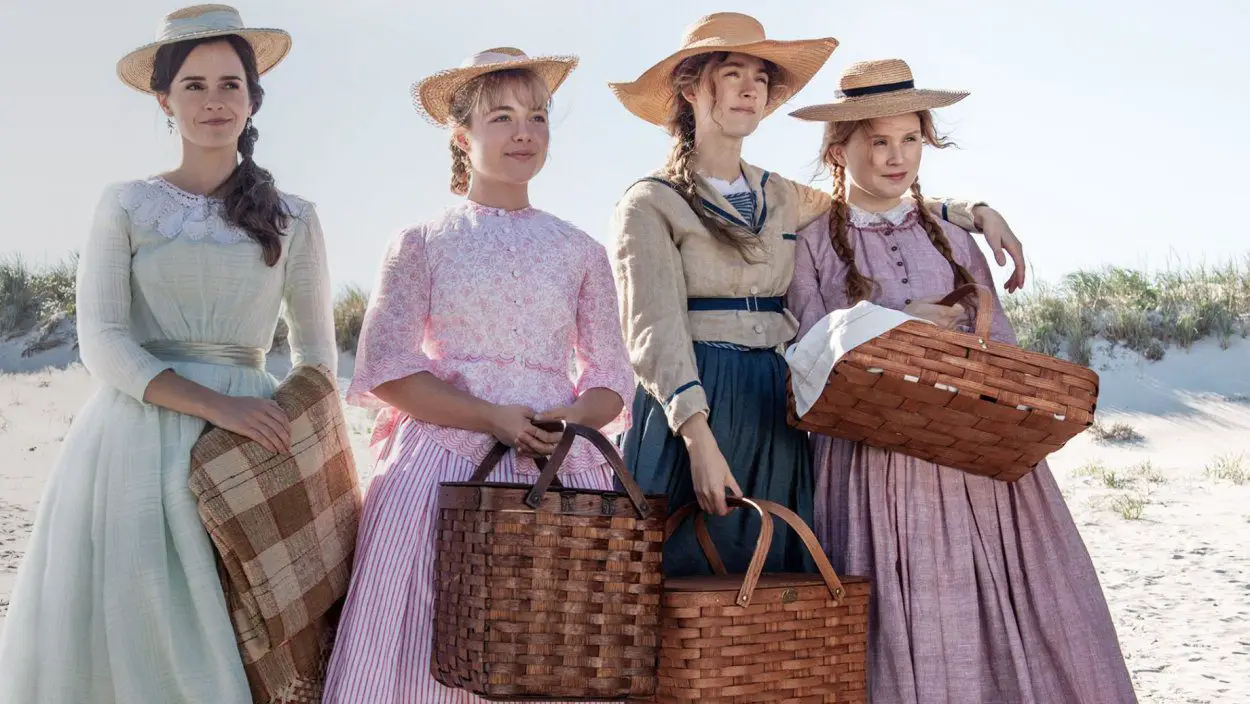For Melody.
“Embrace those you love and follow the path that makes you happy.”
That’s what I want to tell my daughter when she gets older.
Little Women is based on Louisa May Alcott’s classic 1868 coming-of-age, period novel about four young sisters and their trials and tribulations as they become adults in 1860s New England. Our lead sister, Josephine “Jo” March (Saoirse Ronan) is a free spirit who doesn’t always conform to the social norms prescribed to women. Jo loves to teach, but she dreams of being a published fiction writer. She’s the driving force behind the plays she and her sisters put on for family and friends. She not so secretly falls for Theodore “Laurie” Laurence (Timothée Chalamet), a young, rich man who becomes her neighbor when he moves into his well-to-do grandfather’s house. Laurie doesn’t take to wealthy society or the rules the world places on him or women. He not so secretly falls for Jo. But Jo’s desire for independence may deny her the longings of her heart.

Meanwhile, Margaret “Meg” March (Emma Watson) shows promise as an actress in Jo’s home productions, but her heart yearns for motherhood. Amy March (Florence Pugh) studies painting with aspirations to be listed among the greats, but she always comes second to Jo in life. Elizabeth “Beth” March (Eliza Scanlen) is a beautiful piano player who forms a close bond with Laurie’s grandfather, Mr. Laurence (Chris Cooper), who lost his daughter when she was just a child. The family is held together by the sisters’ loving mother Marmee (Laura Dern).
Unlike the linear novel and previous adaptions, this version of the story jumps back and forth through time from the sisters’ young days of dreams and naiveté and sisterly squabbling to their young adult years of making their wishes a reality as they struggle to survive the hardships thrown at them.

Writer and director Greta Gerwig — just off her hit 2017, Academy Award-nominated coming-of-age drama Lady Bird — brings Alcott’s novel into the 21st century with a modern bent and intelligence that makes the source text feel freshly written. Gerwig’s unconventional non-linear approach may throw off Little Women traditionalists, but it works so well it’ll be hard to watch the story any other way from this point forward. It poetically highlights the story’s full-circles, perhaps ironically adds more suspense, and de-emphasizes the plot and puts the characters front and center.
The four leads take different life routes: Meg, a wife and mother; Jo, an independent, make-it-on-her-own writer and teacher; Amy, a developing painter who wants to be the best in the world; and Beth, a talented pianist who’s content playing for herself or her family and just wants everyone to be together and happy. If there’s a main character, it’s Jo, but the movie doesn’t limit us to her dreams. It instead implores us to take the path that makes us content while teaching us to accept that those seeking less or just different things aren’t settling, they’re simply taking an alternate road. And sometimes our dreams change. Sometimes our dreams don’t turn out the way we planned. In the words of Frasier (a timely 2019 pop culture reference), “That’s not necessarily bad.”

Time may have passed (151 years if you don’t want to do math) since Alcott published her book, but her message is no less relevant. Gerwig presents the story like the period trappings don’t matter. Instead, we see women whose struggles would be appropriate in a present-day tale. Gerwig’s script seems almost couched in the pressures modern women have to either be a wife and mother or to reject all that and stay single while pursuing their career. Gerwig reintroduces Alcott’s timeless text to the large screen to remind us once again to ignore the naysayers and that there’s no one road to happiness.
We live in a world of remake after remake. It’ll be far too easy, I’m afraid, to dismiss Little Women as just another Hollywood rehash. I implore people to not miss this one. It’s fresh, relevant and engaging to the end. Women faced countless challenges during the mid-1800s. They still do in 2019. Little Women highlights both subtly while asking us to embrace what’s truly important. Rendered in the warmth of memories and the reliability and eternal devotion of a loving family and group of friends, the movie gives you a serious case of the warm-fuzzies.
“Watch the 2019 version of Little Women.” When she’s old enough, I’ll be telling my daughter that, too.



